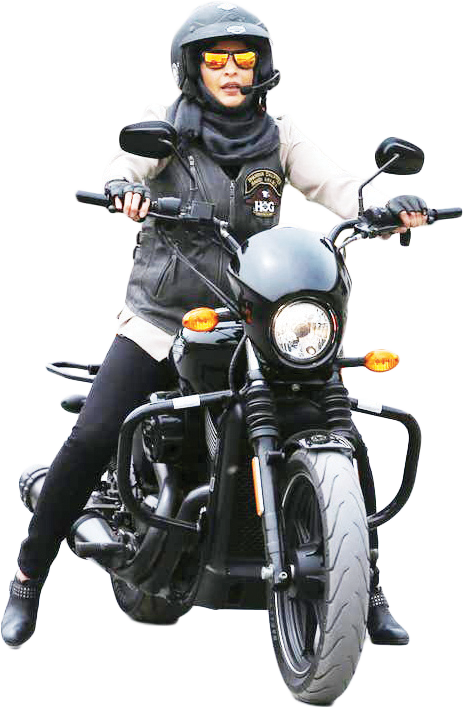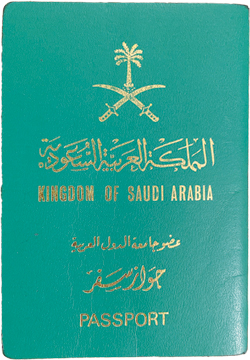JEDDAH: The role of the Saudi Commission for the Promotion of Virtue and Prevention of Vice (CPVPV) — better known as the religious police — has always been to advise and guide society to become better Muslims.
However, after the Kingdom adopted a hard line religiously and socially during the post-1979 Sahwa (Islamic Awakening) era, the religious police strayed from their original intent. Fueled by an extreme ideology and with powers unchecked, this organized group of pious men turned from friend to foe of society. In recent years, Saudi Arabia has implemented a series of reforms under Vision 2030, which aims to better the lives of its people and, according to its architect Crown Prince Mohammed bin Salman, bring society back to moderate Islam.
Perhaps one of the least hyped but most significant reforms was the decision to strip the religious police of its unchecked power. This was an unprecedented, risky yet necessary move that the Saudi government had avoided for decades.
The role of the CPVPV, which was established in 1940, has always been to serve as society’s spiritual guide. Back then, it — and society as a whole — happily saw religion and modernization coexist.
Sheikh Ahmad bin Qasim Al-Ghamdi, a cleric and former director of the religious police in Makkah, recalls the harmony that existed before 1979. “In those days, parents behaved in a pure and natural way. I don’t recall hearing anyone inciting hatred and calling for the exclusion of others who practice different religions, doctrines or culture,” he said. “In general, they were an example of tolerance, optimism and openness.”
School curricula promoted openness, coexistence and independent thinking. The culture of fanaticism, extremism, hate, death, exclusion of the other, and fear of scientific and civic development had not yet infiltrated the education system, said Al-Ghamdi.
“Our parents and grandparents simply expressed that Saudi spirit through true and sincere religiosity, untainted by political views or ethical exaggeration,” he added. “The culture of Saudi society prior to 1979 was moderately religious and into life.”
Al-Ghamdi said Saudi women expressed their best character back then. They had strong and confident personalities, free from unreasonable restrictions in their dress and behavior.
But the spread of extremism led to a decline in their status and the disappearance of their role in Saudi society. Similarly, the creative arts, which had been flourishing, suffered from restrictions later on.
 In 1976, the religious police started to expand and evolve when its branches in Hijazi and Najd merged into one body by Royal Decree 64, which appointed Sheikh Abdulaziz Al-Sheikh as its president. Four years later (and following the events of 1979), on Sept. 5, 1980, Royal Decree 37 was issued to establish a working system for the religious body.
In 1976, the religious police started to expand and evolve when its branches in Hijazi and Najd merged into one body by Royal Decree 64, which appointed Sheikh Abdulaziz Al-Sheikh as its president. Four years later (and following the events of 1979), on Sept. 5, 1980, Royal Decree 37 was issued to establish a working system for the religious body.
It introduced four new sanctions: The formation of the general presidency of the religious police; setting the basis and authority of its president; the appointment, promotion and discipline of members and staff; and its duties in towns and villages. “This development was considered a quantum leap administratively and legally for the religious police,” said Al-Ghamdi.
Extremists sought not only to make society’s old ways look like sinful, but to promote this obscurantist image abroad in an attempt to create a vast civilizational gap between Saudi Arabia and the civilized world, he added.
In 1979, Juhayman Al-Otaibi and his followers threatened the sanctity and safety of the Grand Mosque in Makkah by attacking its guests with explosives and guns. In the aftermath, Saudi Arabia saw the rise of the Sahwa movement. Abdulaziz Al-Khedr, author of the book “Saudi: A History of a Country and Community,” said media discretion was the only way to minimize the damage.
“The case was closed rapidly after their sentences were announced, and it wasn’t even an option to point to the incident anymore. Juhayman’s name was prohibited (from) mentioning in the papers,” wrote Al-Khedr, who captured the palpable change that took place in TV programs and songs between 1980 and 1991, which was felt even by children.
Films were prohibited, music was played less, and female singers were banned from TV but not from radio. “There was a rise in extracurricular activities with a religious orientation,” Al-Khedr wrote.
During the 1980s, Saudi society shifted markedly due to the role played by the religious police. Al-Ghamdi said: “Some influenced Saudis joined terrorist groups and followed organizations that had political motives, such as the Muslim Brotherhood, Al-Qaeda, and later on Daesh.” He added that the CPVPV was not aligned with the realistic requirements of modern society.
Al-Khedr described the cause of the friction between society and the religious police in an op-ed for Makkah Newspaper on Sept. 13, 2014. “What’s problematic about their work is how they relate it to spaces that cover personal freedom in worship and conduct,” he wrote.
The CPVPV’s mission is meant to be that of advice and guidance based on kindness, far from friction with the public or obligating society with jurisprudentially controversial opinions, as well as uncorrected abuse that was sometimes carried out by some of its members, said Al-Ghamdi.
Although the religious police enjoyed the support of a large portion of society at one time, it was not like the danger it posed was not apparent to the Saudi leadership, intellectuals and concerned citizens.
One of those most concerned with the CPVPV’s growing power was the late King Abdullah. His concerns proved correct when in 2002, a fire erupted in a girls’ school in Makkah, and members of the religious police were reportedly accused of hindering the rescue because the girls weren’t wearing abayas.
The result was 15 dead schoolgirls, an international scandal, and a fuming and incredibly frustrated King Abdullah. But because he was only crown prince at the time, and due to the poor health of King Fahd, he was unable to do anything himself or mobilize the ailing king to move forward with what he saw as necessary reform of the CPVPV.
Three years later, Abdullah became king. His approach was to try and replace the head of the religious police with a more moderate figure. Yet because of decades of bureaucracy and the nature of this body of overzealous men, moderate ideas did not travel far, and King Abdullah’s solution did not solve the problem.
Members of the religious police continued to harass citizens and visitors, to the point where some died in car chases.
They destroyed musical instruments, raided beauty salons, shaved heads, whipped people, burnt books, and continued being unchecked — until an unexpected decision came out on April 11, 2016.
The Saudi Cabinet issued a royal decree that stripped the religious police of its privileges, banning its members from pursuing, questioning, asking for identification, arresting and detaining anyone suspected of a crime. They are now obliged to report back to the police and security forces if need be.
It seems as if Saudi Arabia has now regained contact with its pre-1979 self. “Major decisions are being made by the conscious political leadership today, such as allowing women to drive, reforming education, destroying the forces of extremism and violence, allowing Saudi art to return to its natural place, and starting huge economic projects such as NEOM, the Red Sea Project and others, indicating how life in Saudi Arabia is regaining its true spirit,” said Al-Ghamdi.
Today’s Saudi society is living in its best time, having recovered its social values, optimism and hope for the future. It is combating extremism adopted by Iran, Qatar and the Muslim Brotherhood.
 Saudi Arabia has also shifted its attitude toward women, allowing them into stadiums, giving them the right to obtain passports and travel without a male guardian’s consent, and promoting them to leadership positions.
Saudi Arabia has also shifted its attitude toward women, allowing them into stadiums, giving them the right to obtain passports and travel without a male guardian’s consent, and promoting them to leadership positions.
The religious police’s role has become more lenient. Al-Ghamdi said the changes have effectively corrected the imbalance of many of its procedures, restoring its work balance and semi-enabling it to return to be a source of moderation.
“The new CPVPV has managed to defuse the strife in the relationship between its past self and society,” he added.
“It has prevented the distortion and weak confidence that the people had in the procedures that were followed in the past,” he said.
Those procedures “damaged the reputation of the promotion of virtue and prevention of vice as a ritual, and the reputation of the Kingdom as a state that applies the provisions of Islam.”




















